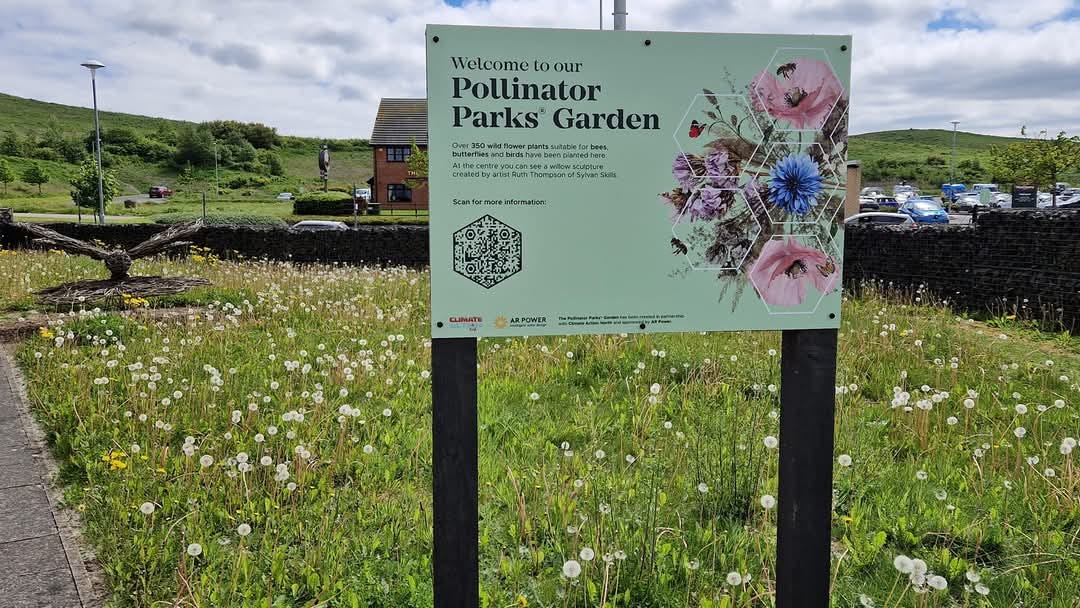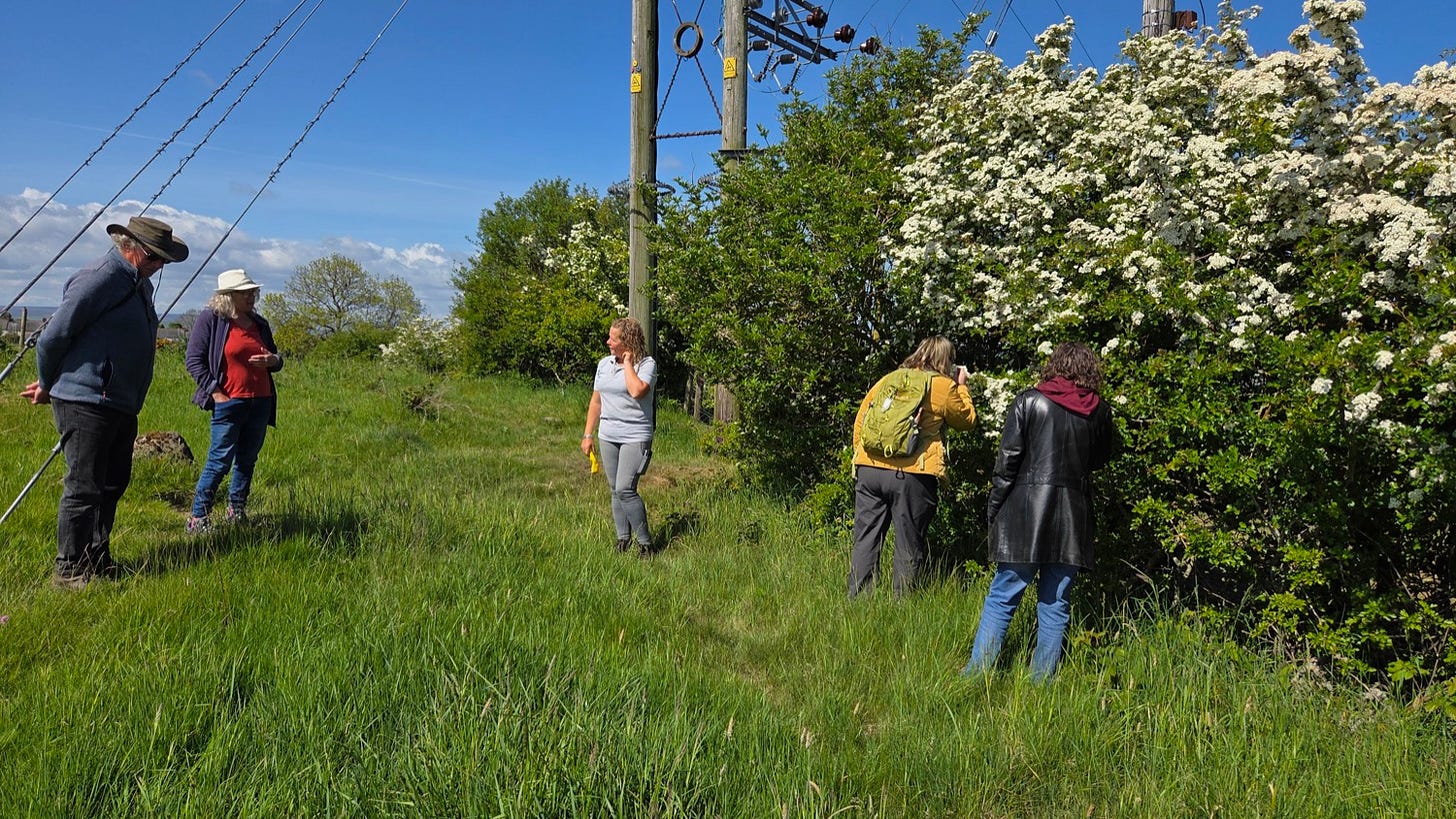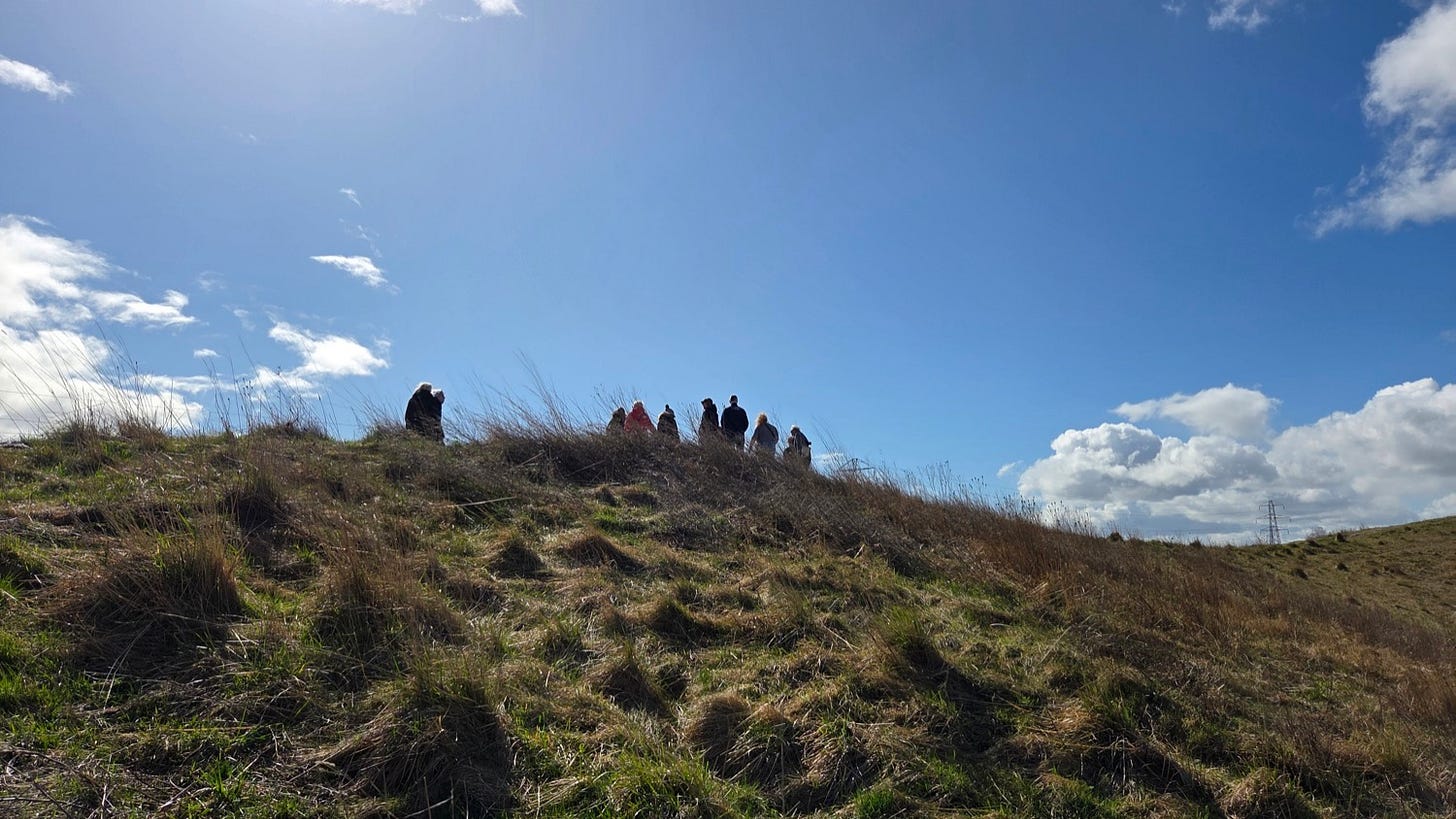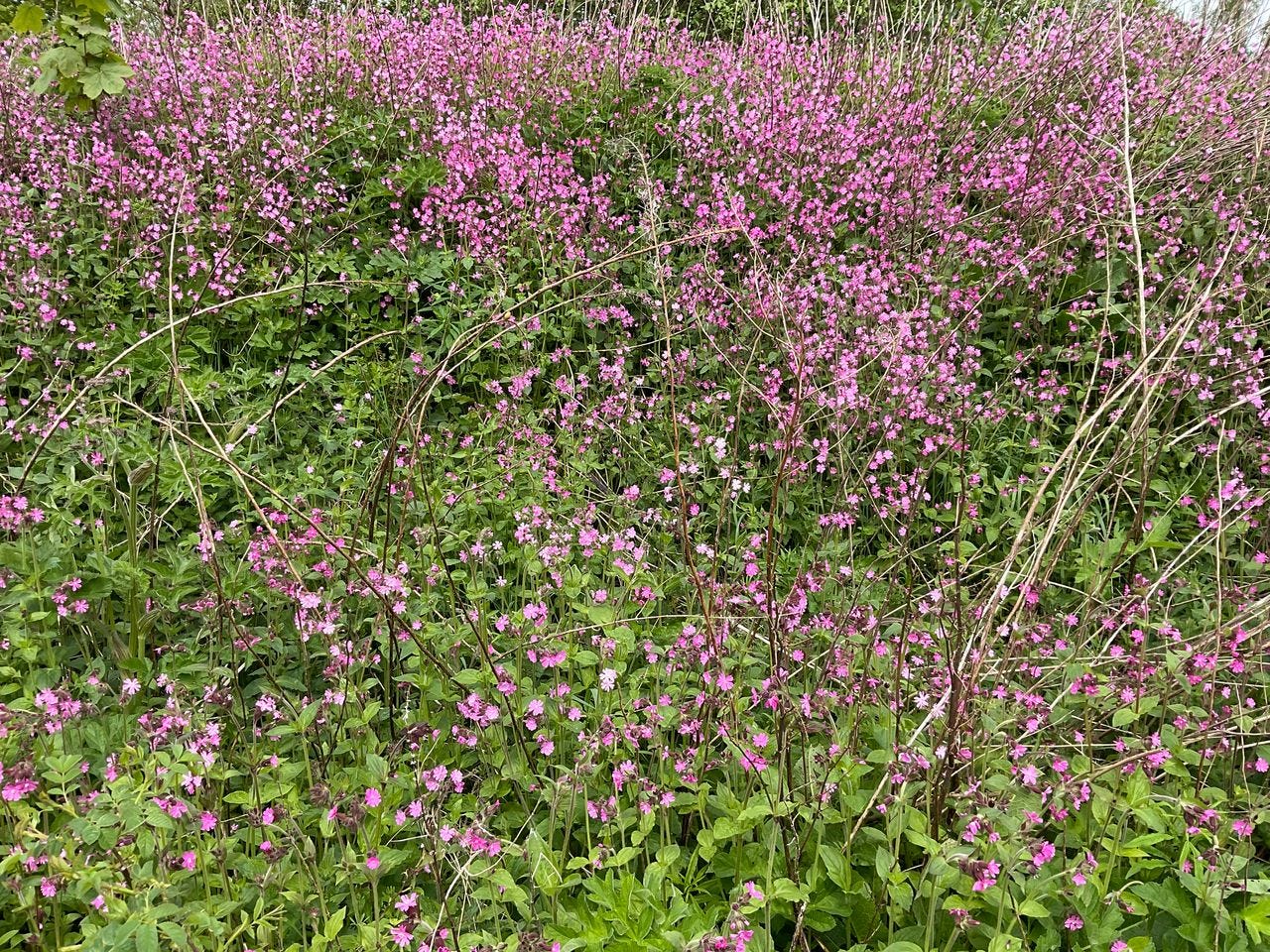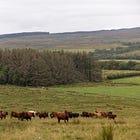Roadshow to grow the rewilding message
Rewilding takes to the road and hospital grounds in the North East. Tony Henderson reports
The drive to rewild tracts of the North East will be showcased in an event in the heart of urban Tyneside.
Climate Action North, the lead coordinator for the Rewilding Network in the North of England, will stage a roadshow at the Metrocentre Hub in the Green Quadrant from 11am to 3pm on Sunday, October 26.
Visitors can explore how they can bring nature back in their own gardens, parks, streets, and community spaces. With practical advice, activities, and real-life stories from local rewilders, the roadshow aims to spark ideas, build confidence, and connect people who want to make a difference for wildlife and the climate.
Participants include the North East Rewilding Network, Bees of Bensham/Dingy Butterflies, The Sea We See (CIC), Durham Wildlife Trust, Wilder Northumberland Network, the Conservation Volunteers, the Missing Lynx, RHI National Education Nature Park, and Randoms Retreat.
Northumbria Healthcare NHS Foundation Trust is also working with Climate Action North to create spaces which benefit people and wildlife across five hospital sites, as part of community rewilding efforts.
Sharon Lashley, chief executive of Climate Action North, said: “We’re excited to take the North East Rewilding Network on the road and bring rewilding into the heart of our communities.
“These roadshows are about people reconnecting with the natural world around them. Nature needs people and everyone can do something, whether that’s planting wildflowers, creating wildlife-friendly spaces, or meeting one of the many amazing rewilders across the North of England, joining our training, or becoming part of the rewilding network to help nature bounce back.
“Community is at the heart of rewilding. These roadshow events provide a space for people to come together, share ideas, and find simple ways to make a difference in their own neighbourhoods.
“We also run an online North East Rewilding Network platform to showcase small-scale land, community and marine rewilding projects taking place in the North. This paints a picture of the collective efforts to support nature recovery, promote climate solutions, mobilise community rewilding, and links to wider rewilding networks.”
Climate Action North has also launched a new project called the Young Rewilders Networking Group (YOUNG) to grow community rewilding.
Cameron Gough, chairman of the YOUNG committee, said: “It’s a pleasure to head this very exciting committee and begin planning activities and opportunities to connect young rewilders across the region and the UK.”
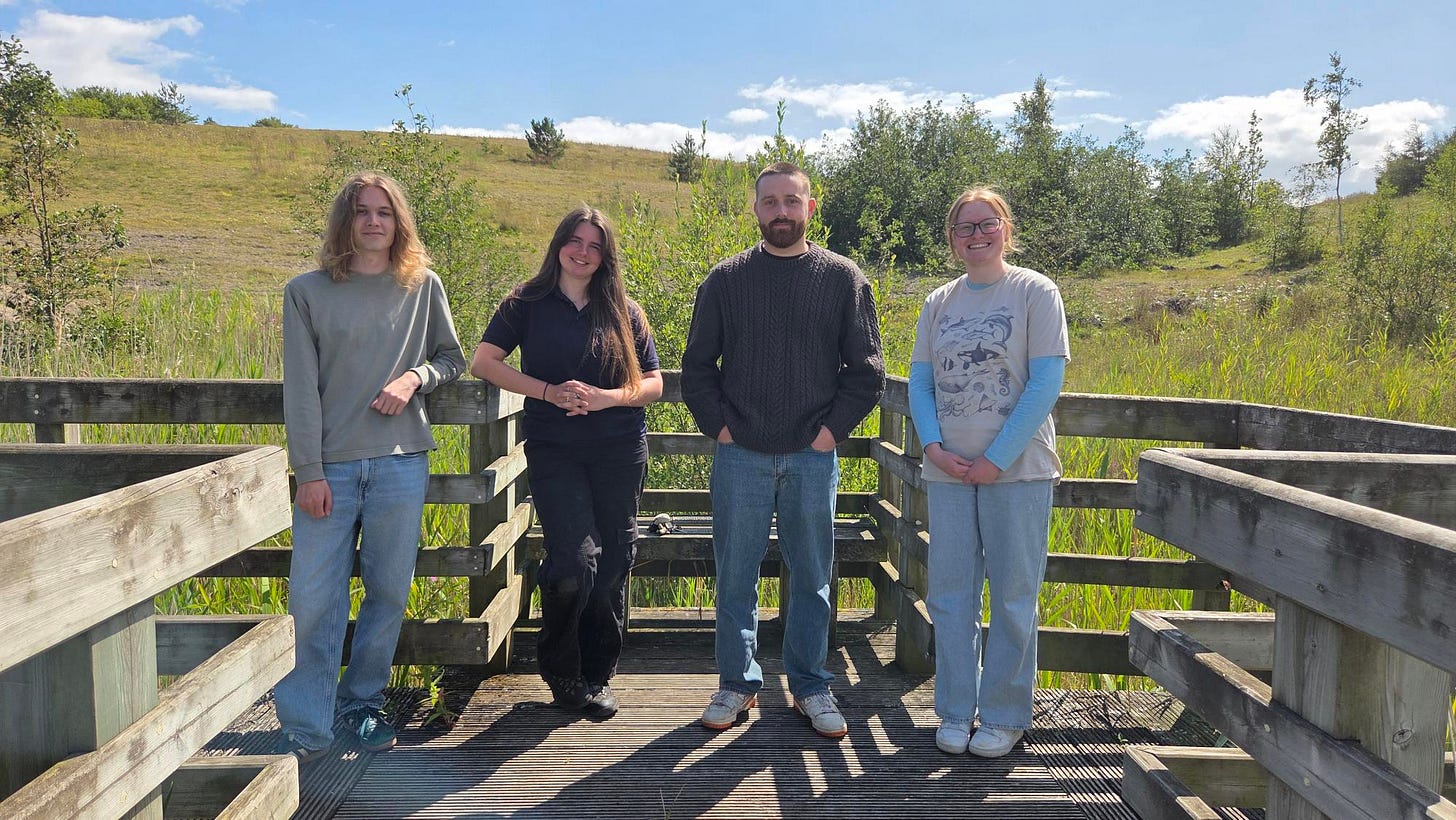
The committee is to plan a spring gathering in 2026 on a North East rewilding site.
Sharon Lashley said: “This is about handing the reins to the next generation and giving them the tools, networks, and confidence to lead. Young people are leading the fight against the climate crisis, and their energy and ideas will drive rewilding forward in the years to come.”
Anyone who would like to get involved, should email info@climateactionnortheast.org.uk
Northumbria Healthcare NHS Foundation Trust will focus on rewilding hospital grounds as part of Climate Action North’s Pollinator Parks initiative.
Community rewilding will take place at Alnwick Infirmary, Hexham General Hospital, North Tyneside General Hospital, Wansbeck General Hospital, and Northumbria House (Cobalt). It includes planting native plants, creating wildlife habitats, and turning underused green spaces into natural environments.
These rewilded areas will be designed to provide calming outdoor spaces for patients, staff, and visitors.
Phil Macari, ecology and community rewilding director at Climate Action North, is working with Clare Winter from the Trust’s sustainability team on the project.
He said: “Nature has a powerful connection to human health. This rewilding plan will be designed with both patients and staff in mind.”
Clare said: “This is a practical step to bring nature back into everyday healthcare spaces, offering a healthy environment that can support both wildlife and people.”
Climate Action North’s work is primarily funded by corporate sponsorships from the business community, which is then reinvested into climate action initiatives across the region.
Research warns that large-scale use of commercial seed mixes could threaten local biodiversity
A study led by Durham University has shown that commercially sourced wildflower seeds, widely used in meadow creation, rewilding, and biodiversity projects, could unintentionally harm native wildflowers in Britain.
Researchers focused on red campion, a widespread species often included in wildflower mixes, and found that plants from commercial seed suppliers are not the same as those growing naturally in the wild.
The team grew seeds from 10 wild populations across Britain alongside two commercial seed sources in controlled garden experiments.
They measured plant size, flowering patterns, and genetic variation. The results revealed clear differences where commercial plants were larger and more vigorous than wild ones, a sign that cultivation has already shaped them.
Although both commercial and wild plants showed high genetic diversity, the commercial ones were genetically distinct, suggesting they come from narrow or shared origins.
This distinction matters because if commercial plants are planted on a large scale, they may cross-pollinate with local wildflowers.
Such gene flow could reduce or even erase local adaptations that wild populations have developed over centuries to cope with their unique environments.
In the long term, this risks making populations less resilient to pests, diseases, or climate change, and may change the way ecosystems function.
The study confirms that even a common and abundant species like red campion is vulnerable to being altered by restoration practices.
If this can happen to such a widespread wildflower, the risks may be even greater for rarer or more isolated species.
The findings underline the need for restoration projects to use local, genetically varied seed to maintain the natural patterns of diversity that underpin healthy ecosystems.
The study says restoration efforts should use locally sourced seeds rather than mass-produced commercial stock.


